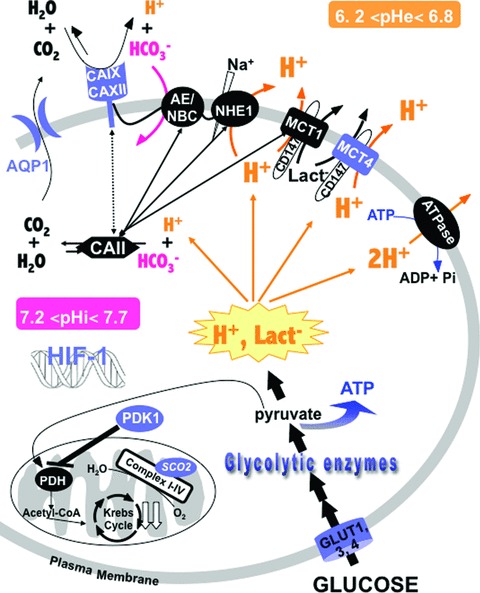Fig 7.

Up-regulation of glycolysis and pHi regulation: hallmarks of invasive cancers. HIF-1 stimulates glycolysis by activating the expression of the glucose transporters GLUT and glycolytic enzymes such as HK2, lactate dehydrogenase A, and PDK1, an inhibitor of PDH, that inhibits mitochondrial uptake of pyruvate. Mutation of p53 blocks the expression of SCO2 that is critical for regulating the COX complex, the major site of mitochondrial oxygen utilization. Despite the huge production of lactate−/H+ (represented in orange), tumour cells maintain the pHi compatible with cell viability by activating their constitutively expressed pHi-regulating system (black symbols) such as the Na+/H+ exchanger-1 (NHE-1), the bicarbonate transporters such as Cl−/HCO3− exchangers (AE), Na+-dependent HCO3− transporter (NBC), the MCT1, the H+-pump (V-ATPase), the cytoplasmic carbonic anhydrase II (CAII) and the HIF-1-induced pHi-regulating systems (blue symbols) such as the MCT4, carbonic anhydrases IX and XII (CAIX and CAXII) and aquaporin 1 (AQP1). Many of these components, which regulate the pHi, may interact to form a ‘metabolon’ that enhances metabolic flux of H+, lactate− and HCO3− (represented by double arrows).
